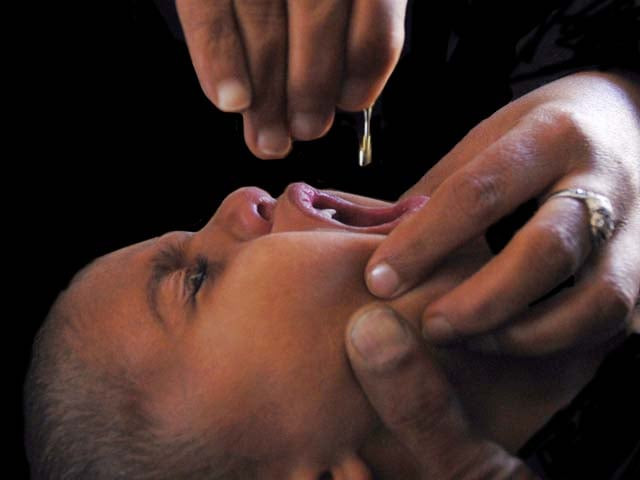Mounting concern: Case in North Waziristan brings polio count to 10
Health officials claim the virus can mutate if a certain area is left unimmunised .

The total number of cases in the country in 2013 has reached 10. PHOTO: FILE
The militants’ adamant stance to allow polio vaccinations only if drones strikes are stopped has resulted in yet another case of the disease surfacing in North Waziristan, pushing the total number of reported cases to 10.
In the latest case, 36-month-old Abu Sohail was paralysed as he was unable to receive polio vaccines since the ‘ban’ imposed on anti-polio campaigns in the region.
The National Institute of Health in Islamabad stated in a report the child belongs to Mir Ali and had received one oral vaccine before the ban was imposed in the agency in June last year. This is the second reported case in the area in less than three weeks.
According to World Health Organization (WHO) officials, when an area remains unimmunised for a long period of time the virus gains the ability to mutate itself. Health experts said the Sabin polio virus was very similar in genetic behaviour to the P1 type.

Replying to a question regarding any specific vaccine required to control mutated polio viruses, an expert explained the same polio vaccines currently being used across the world could overcome the mutated strains if used over a period of short intervals.
“In November last year, Qilla Abdullah district in Balochistan reported four Sabin-like cases. Three emergency polio campaigns were conducted in the district over a span of two weeks to fight the mutated virus,” said the expert.
However, health experts remain fearful of the ban imposed by militants in Waziristan, which has left over 260,000 children unvaccinated since last June. Because of this, the chances of the mutated polio virus paralysing more children in Waziristan and surrounding areas are growing day by day.
Militants imposed the ban in both North and South Waziristan agencies in June last year, and claimed it would not be lifted unless drone strikes were suspended. Since then, no anti-polio campaign has been carried out in both agencies and the government’s repeated efforts to convince militant leaders otherwise have failed.
The total number of cases in the country in 2013 has reached 10. Last year, 58 cases were reported across the country including 27 in Khyber-Pakhtunkhwa and 20 in the Federally Administered Tribal Areas.
Published in The Express Tribune, May 24th, 2013.













COMMENTS
Comments are moderated and generally will be posted if they are on-topic and not abusive.
For more information, please see our Comments FAQ